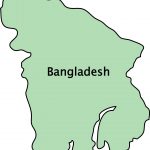The Nigerian Financial Intelligence Unit has raised alarm over ₦48 billion in suspicious financial transfers from Nigeria to Dubai and Hong Kong between 2021 and 2024.
In its May 2025 report, the NFIU revealed that it recorded a sharp rise in Suspicious Transaction Reports involving these two regions, which are now seen as major routes for illegal financial activities.
The report stated, “In 2021, only two suspicious transaction reports worth ₦42 million were filed. But by 2024, the number jumped to 202 reports valued at ₦32 billion.”
From January 2021 to September 2024, a total of 401 STRs worth over ₦48 billion were received by the NFIU. Of these, 185 were linked to Dubai while 216 were tied to Hong Kong.
According to the agency, this trend suggests that the “Dubai-Hong Kong axis” is now being used more often by individuals and groups trying to move “dirty money” out of Nigeria.
The NFIU explained that these locations are attractive to illegal money networks because of their connection to global financial markets and their different legal rules, which can make it easier to hide or clean up stolen funds.
Quoting international research, the report said, “This axis is increasingly viewed as an attractive route for dirty money networks and is noted for its capacity to accommodate a range of illicit financial activities due to differing regulatory standards and legal infrastructures.”
As a result, the NFIU has urged Nigerian banks and other financial institutions to be extra careful with any transactions involving Dubai and Hong Kong.
“It is important that financial institutions and non-financial businesses apply stronger checks, monitor transactions closely, and report any suspicious activity quickly,” the report warned.
The agency stressed the need for enhanced due diligence to prevent and reduce the misuse of the financial system for criminal purposes.
This alert follows recent data from Nigeria’s Minister of Justice, who said anti-graft agencies like the EFCC and ICPC recovered ₦277 billion and $105 million in 2024 alone.
The NFIU’s findings have sparked concern among security and anti-corruption experts, as they continue efforts to block illegal financial routes and protect Nigeria’s economy.











